Feeling lonely is something we all face at one point or another. While it might seem like an exclusively human experience, animals deal with loneliness too and often have clever ways of handling it. By observing how they manage solitude, we might just learn a thing or two about turning loneliness into something more meaningful. So, if you’re feeling a little isolated, take a page from the animal kingdom’s book and see what you can apply to your own life.
1. Elephants Stick Together
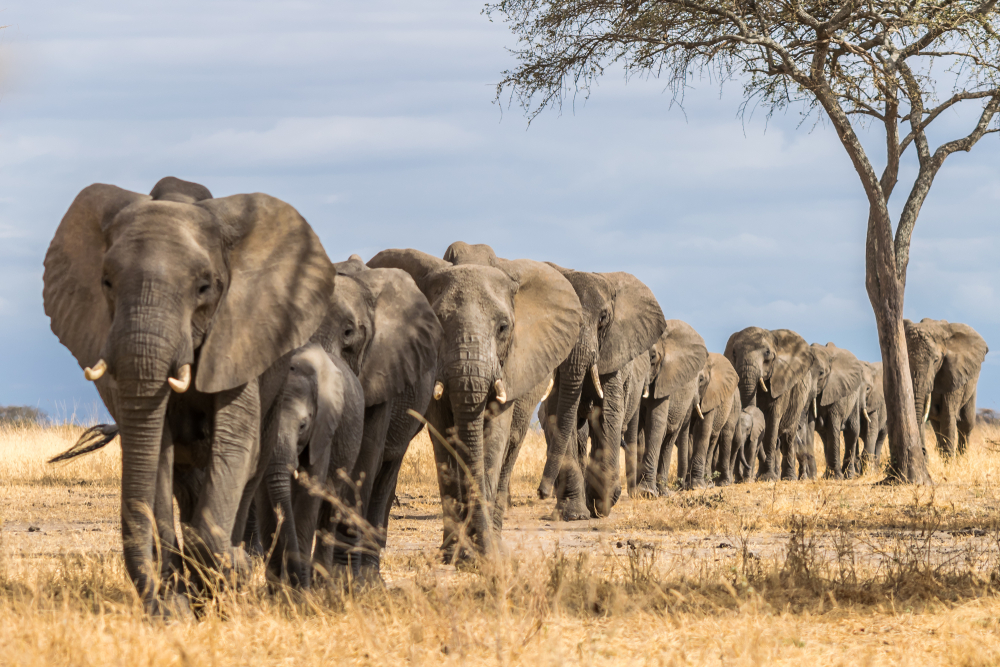
Elephants are known for their incredible memory and strong social bonds. When faced with isolation, they often huddle together with their herd, forming a supportive community. According to a study by Dr. Caitlin O’Connell-Rodwell published in the journal “Science,” elephants use vocalizations like rumbles and trumpets to communicate and stay connected even when physically apart. By relying on their social circles, they maintain a sense of belonging and emotional support. You can learn from elephants by reaching out to friends or family and creating your own support system.
Beyond just hanging out with their herd, elephants also engage in activities that strengthen their bonds. They often play games, engage in mutual grooming, and even help care for each other’s young. By participating in these activities, they build tighter relationships and reduce feelings of loneliness. Try organizing group activities or just spending time with loved ones to strengthen your connections and alleviate loneliness.
2. Dolphins Use Playful Interaction

Dolphins are incredibly social creatures that thrive on interaction with others in their pod. When they experience loneliness, they often engage in playful behavior to lift their spirits. This could mean playing with seaweed, chasing each other, or surfing in the waves. By incorporating play into their routine, dolphins manage to stay active and engaged even when they might feel isolated. Taking a cue from dolphins, try finding playful activities that bring joy and keep you connected with others.
It’s not just about play for dolphins; their interactions also include complex communication. Dolphins use a range of clicks, whistles, and body movements to express themselves and convey emotions. This constant communication helps them maintain strong social ties, even when spatially separated. Mimic this approach by keeping in touch with friends through phone calls, texts, or video chats. Regular communication can help bridge the gap between loneliness and companionship.
3. Birds Sing To Connect
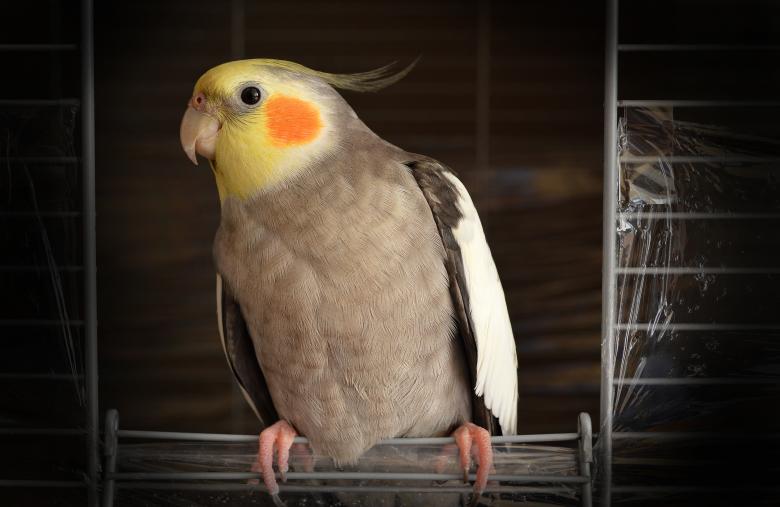
Many birds use song as a way to communicate over long distances and maintain a sense of connection with their flock. When alone, they might sing to express their feelings or attract others. Research by ornithologist Dr. Donald Kroodsma, detailed in his book “The Singing Life of Birds,” highlights how songbirds use their voices to establish territory and strengthen social bonds. This form of expression keeps them engaged and connected, even in isolation. Consider finding your own creative outlet, like singing or writing, to help express emotions and reach out to others.
Singing isn’t just about communication for birds; it’s also a way to relieve stress and maintain mental well-being. Many birds sing more vigorously when they’re alone, which can help them stay calm and focused. Similarly, engaging in activities that bring you joy can help you manage feelings of loneliness. Whether it’s singing in the shower or picking up a musical instrument, find ways to express yourself and stay positive.
4. Wolves Work Together
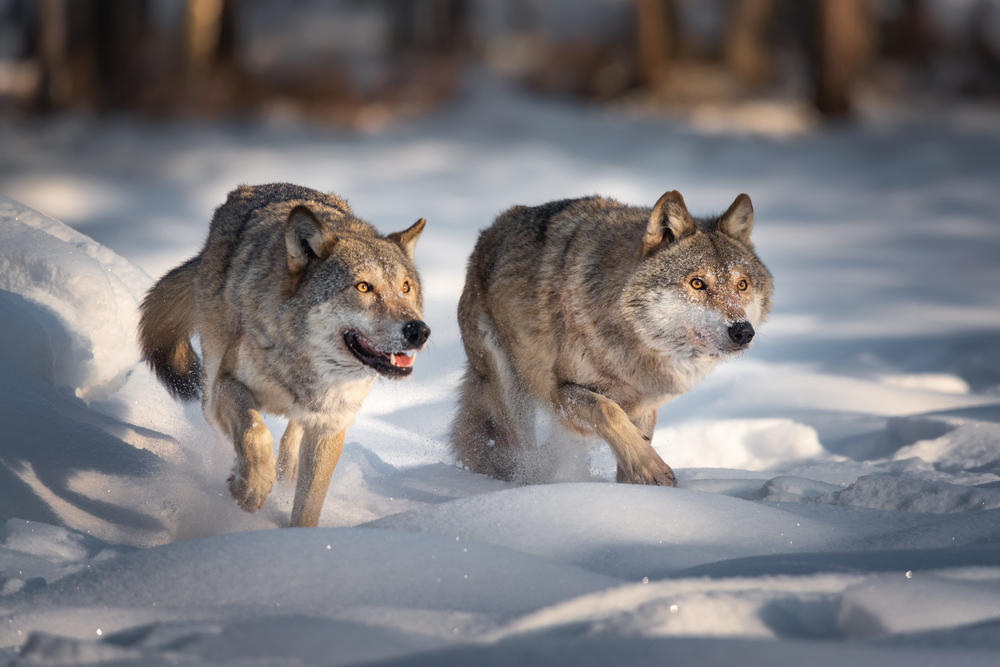
Wolves are pack animals that rely heavily on teamwork and cooperation. When a wolf is isolated from its pack, it often uses its howls to communicate and find its way back to the group. This vocalization not only helps locate others but also strengthens the bonds within the pack. By working together, wolves can overcome challenges and reduce the feelings of loneliness. You can learn from wolves by collaborating with others on projects or common goals, fostering a sense of unity.
Beyond their teamwork, wolves also engage in social rituals that reinforce their connections. These include nose touching, licking, and playful wrestling. These interactions help maintain the social structure and ensure that each pack member feels valued. Emulate this approach by investing time in nurturing your relationships, whether through shared meals or group activities. Building a strong support network can help mitigate feelings of isolation.
5. Cats Find Solace In Routine

Cats are creatures of habit and find comfort in routine, especially when they’re alone. They often establish a daily rhythm of eating, grooming, and exploring their surroundings. A study led by Dr. John Bradshaw, author of “Cat Sense,” found that these routines help cats feel secure and reduce anxiety when they’re away from their humans. By sticking to a consistent routine, cats manage to create a sense of stability and peace. Similarly, creating your own daily routine can help you manage loneliness and provide a sense of structure.
In addition to routine, cats also find comfort through self-care activities like grooming. This not only keeps them clean but also serves as a way to relax and calm themselves. By prioritizing self-care, cats enhance their well-being and reduce feelings of isolation. You can adopt this practice by setting aside time for activities that improve your physical and mental health. Whether it’s reading a book, taking a bath, or meditating, self-care is essential for combating loneliness.
6. Bees Stay Busy
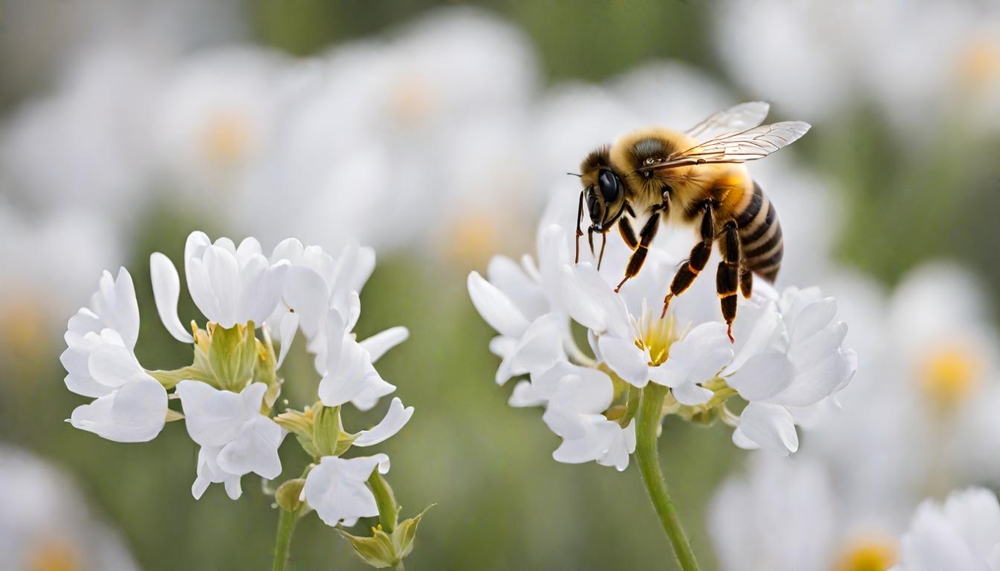
Bees are known for their industrious nature and constant activity within the hive. When faced with solitude, they rely on their work to stay engaged and connected to their community. The act of collecting pollen, building honeycombs, and caring for the queen keeps them focused and socially active. By immersing themselves in productive tasks, bees manage to avoid feelings of loneliness. You can take inspiration from bees by finding projects or hobbies that keep you busy and connected to others.
Beyond their work, bees communicate through a complex system of movements known as the “waggle dance.” This form of communication helps them share information about food sources and hive activities, fostering a sense of community. By staying informed and involved, bees maintain strong social ties and a sense of belonging. Consider staying engaged with your community through volunteering, clubs, or group activities. Being part of something larger than yourself can help alleviate loneliness.
7. Octopuses Explore Their Environment

Octopuses are solitary creatures that often explore their environment to combat loneliness. By manipulating objects, investigating hidden crevices, and playing with their surroundings, they stay mentally stimulated and engaged. According to marine biologist Dr. Jennifer Mather, octopuses demonstrate complex problem-solving abilities, which help them adapt to isolation. This constant exploration not only prevents boredom but also enhances their mental well-being. Like octopuses, you can explore new hobbies or interests to keep your mind active and alleviate feelings of loneliness.
In addition to exploration, octopuses are known for their adaptability and resourcefulness. They can change color and texture to blend into their surroundings, allowing them to navigate different environments. This adaptability ensures they remain resilient even when faced with challenges. You can apply this lesson to your own life by being open to new experiences and finding creative ways to connect with others. Embracing change can help you overcome loneliness and discover new opportunities.
8. Penguins Huddle For Warmth
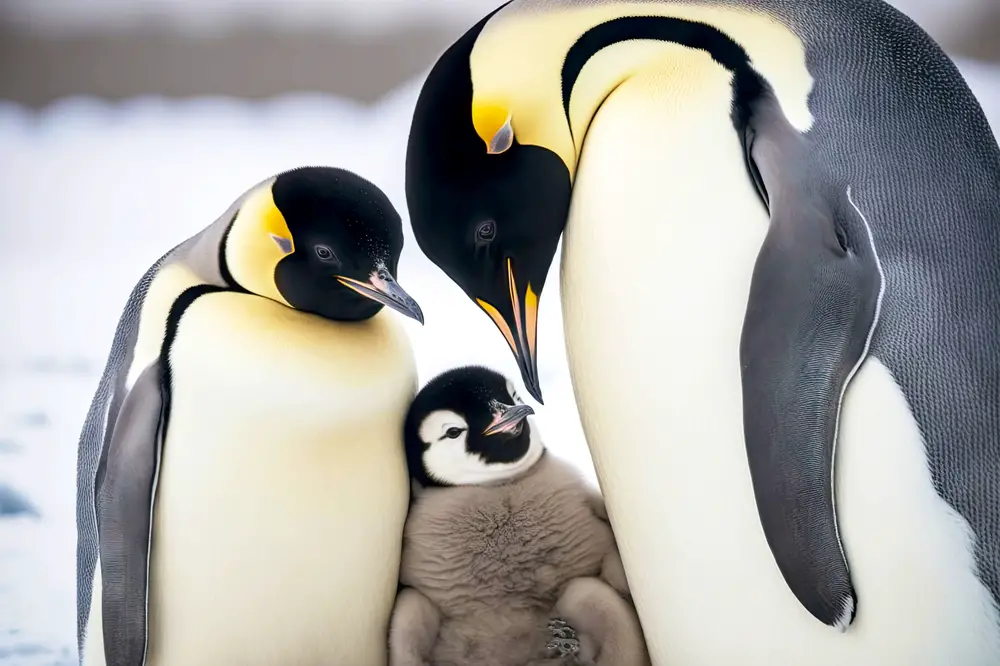
Penguins are famous for their huddling behavior, which is essential for survival in the harsh Antarctic climate. When faced with extreme cold and isolation, they gather closely together to share body heat and create a sense of community. This cooperative behavior not only keeps them warm but also strengthens social bonds. By relying on each other, penguins manage to stay connected and support one another. You can replicate this approach by seeking comfort and companionship from those around you during difficult times.
Beyond physical warmth, penguins also engage in vocal communication to maintain strong connections with their colony. They use unique calls to identify mates and offspring, ensuring that each penguin feels recognized and valued. This constant interaction helps them maintain a sense of identity and belonging. By nurturing your relationships and making time for regular communication, you can foster a sense of connection and alleviate loneliness.
9. Monkeys Groom Each Other
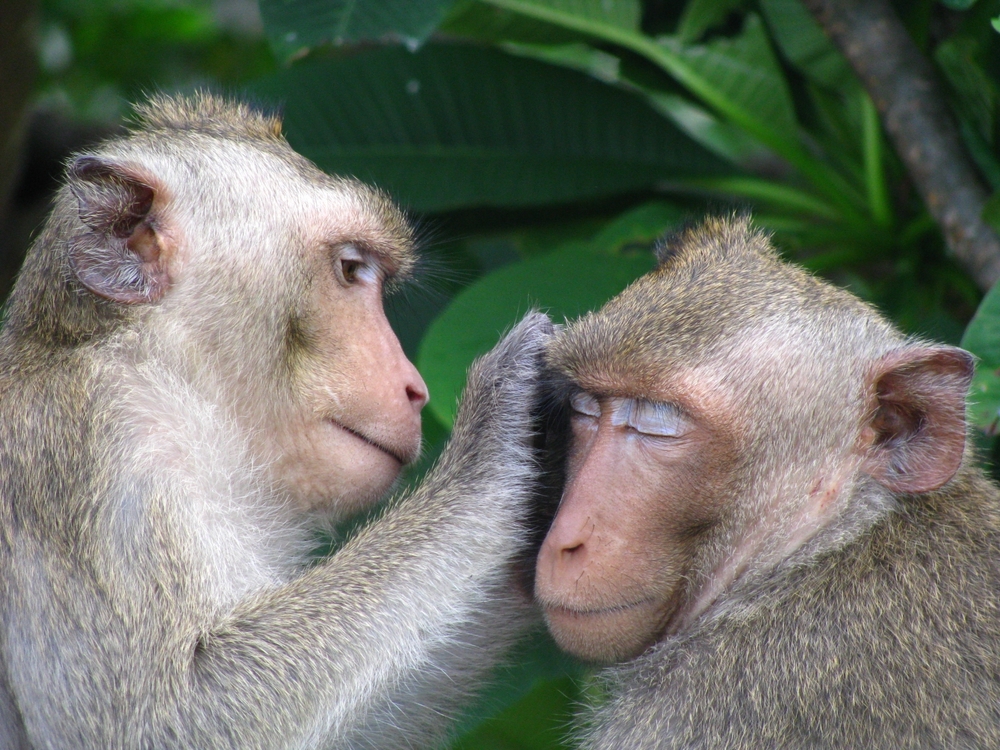
Monkeys are highly social animals that rely on grooming as a way to bond and reduce stress. When they feel lonely, they often engage in mutual grooming sessions, which help strengthen relationships and provide comfort. This behavior is not just about hygiene but also serves as a form of social interaction that reassures and calms them. By prioritizing social connections, monkeys manage to maintain a sense of community and reduce isolation. You can learn from this by investing time in nurturing your relationships and offering support to those around you.
In addition to grooming, monkeys are known for their playful nature and frequent social interactions. These activities help them reinforce social bonds and create a sense of belonging. By staying active and engaged with their group, monkeys manage to alleviate loneliness and enhance their well-being. Consider incorporating more social activities into your routine, whether it’s through shared hobbies or simply spending time with others. Building a strong support network can help you combat loneliness.
10. Turtles Find Peace In Solitude

Turtles are solitary creatures that often find comfort and contentment in their own company. When alone, they explore their surroundings at their own pace, taking time to enjoy the peace and quiet. This self-sufficiency allows them to thrive even without constant social interaction. By finding joy in solitude, turtles manage to maintain a sense of balance and well-being. You can take inspiration from turtles by embracing your own company and finding activities that bring you peace.
In addition to exploring their environment, turtles often bask in the sun to regulate their body temperature and relax. This simple act can serve as a form of self-care, allowing them to recharge and unwind. By prioritizing relaxation and self-care, turtles enhance their mental health and reduce feelings of loneliness. You can apply this lesson by setting aside time for activities that help you relax and recharge. Embracing solitude can be a rewarding experience that promotes personal growth and resilience.
11. Ants Rely On Cooperation
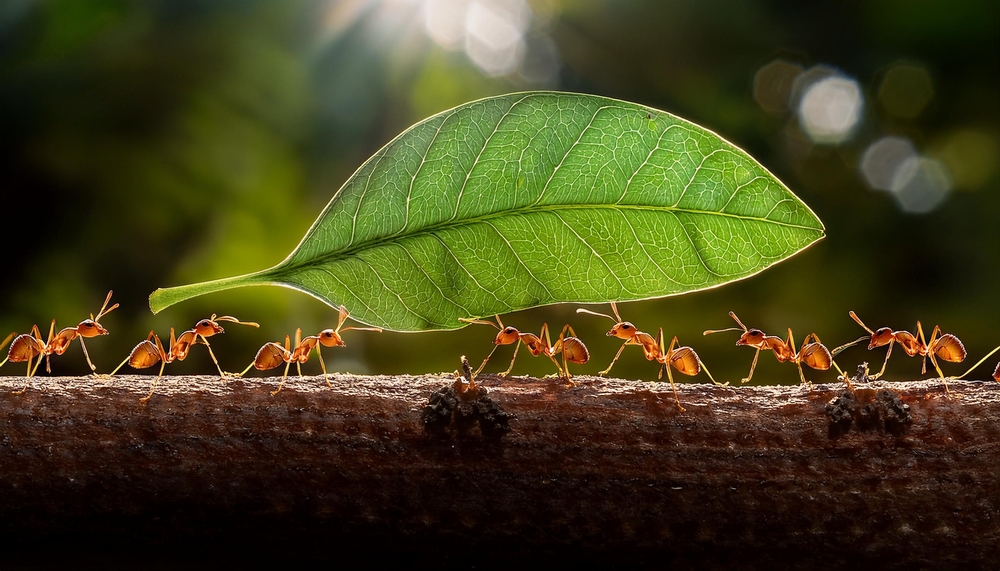
Ants are highly social insects that rely on cooperation and teamwork within their colony. When faced with challenges, they work together to find solutions and support each other. This collaborative approach ensures that each ant feels connected and valued, reducing feelings of loneliness. By fostering a sense of community, ants manage to thrive even in difficult situations. You can learn from ants by collaborating with others and building strong support networks.
Beyond just working together, ants communicate through pheromones, which help them share information and coordinate activities. This constant communication fosters a sense of unity and belonging within the colony. By staying informed and involved, ants maintain strong social ties and a sense of purpose. Consider staying engaged with your community or professional networks to foster a sense of connection and mitigate loneliness. Being part of a supportive network can enhance your well-being and provide a sense of belonging.
12. Horses Form Strong Bonds
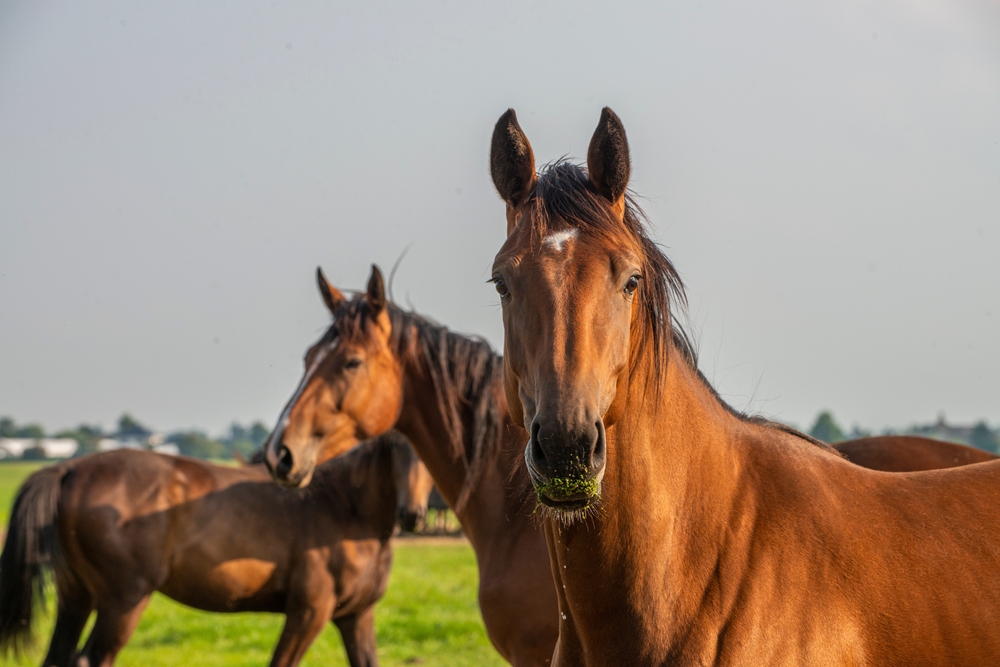
Horses are social animals that form strong bonds with other horses in their herd. When they feel lonely, they often rely on these connections for comfort and support. Mutual grooming, playing, and simply being in close proximity help reinforce these bonds and reduce feelings of isolation. By nurturing their relationships, horses manage to maintain a sense of community and well-being. You can take inspiration from horses by investing time in nurturing your friendships and creating strong social ties.
In addition to bonding with their herd, horses also engage in activities that promote social interaction. These can include synchronized movements, vocalizations, and even playful behavior. By staying active and engaged with their group, horses enhance their sense of belonging and reduce loneliness. Consider participating in group activities or shared hobbies to strengthen your connections and alleviate feelings of isolation. Building a strong support network can enhance your well-being and provide a sense of community.
13. Dogs Stay Loyal

Dogs are known for their loyalty and strong attachment to their human companions. When they feel lonely, they often seek out the company of their humans for comfort and companionship. By staying close to those they trust, dogs manage to maintain a sense of security and belonging. This loyalty and connection help them navigate feelings of loneliness and enhance their well-being. You can learn from dogs by prioritizing your relationships and seeking out those you trust for support.
Beyond their attachment to humans, dogs also engage in social interactions with other dogs. Whether through play, walks, or visits to the dog park, these interactions help them build social bonds and reduce loneliness. By staying active and engaged, dogs manage to enhance their sense of community and well-being. Consider incorporating more social activities into your routine, whether it’s spending time with friends or participating in group events. Building a strong support network can help you combat loneliness and enhance your quality of life.
14. Whales Communicate Through Song

Whales are known for their complex vocalizations, which they use to communicate over vast distances. When faced with isolation, they often rely on these songs to connect with others in their pod. This form of communication helps them share information, coordinate activities, and maintain social bonds. By staying connected through song, whales manage to reduce feelings of loneliness and foster a sense of community. You can take inspiration from whales by finding creative ways to communicate and stay connected with others.
In addition to their vocalizations, whales also engage in social behaviors like breaching, spy-hopping, and bubble-net feeding. These activities not only serve practical purposes but also reinforce social bonds within the pod. By participating in shared activities, whales enhance their sense of belonging and reduce loneliness. Consider engaging in group activities or hobbies that foster social interaction and connection. Building a strong support network can help you navigate feelings of isolation and enhance your overall well-being.
